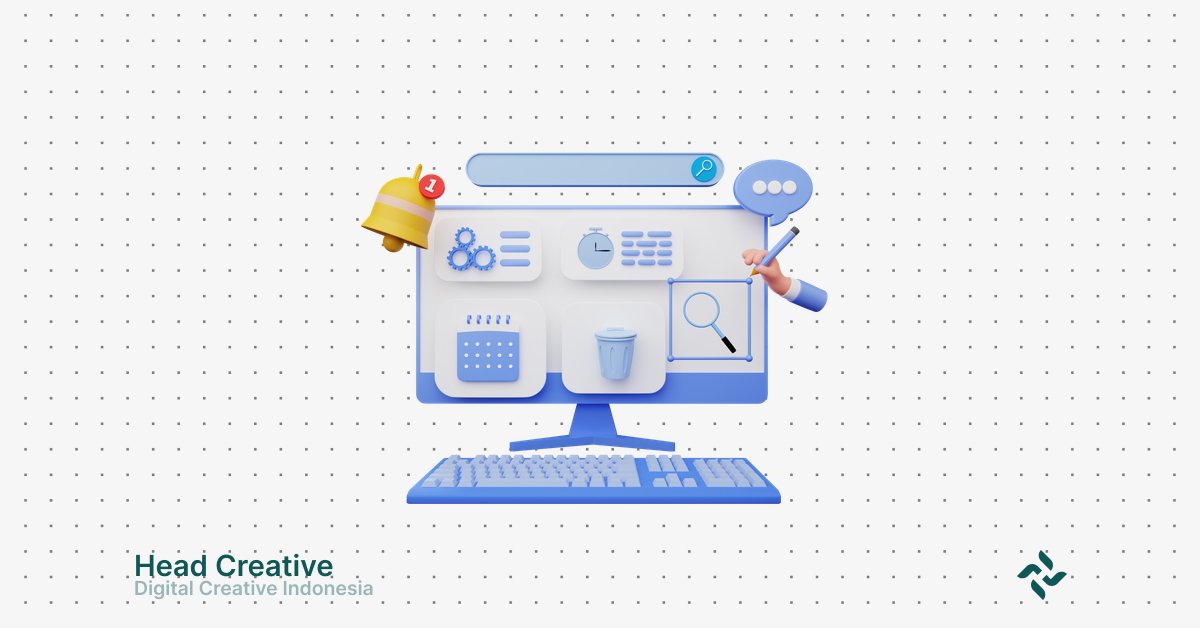What Are Custom Websites and Template Websites?
In the increasingly competitive digital world, having a website that meets your business needs is no longer optional—it’s essential. However, businesses often face a dilemma: Should they choose a custom website or a template website? To answer this, let’s first understand what a custom website and a template website are.
Custom Websites: Unique Solutions for Specific Needs
A custom website is a type of website designed from scratch, fully tailored to meet your business needs and goals. It does not use ready-made templates or pre-designed layouts, allowing for unlimited flexibility and creativity.
Advantages:
- Complete Flexibility: You have full control over the design, features, and functionality. Need integration with your company’s internal system? Done. Require unique features like a customer portal? No problem.
- Unique Branding: Because it is specifically designed, this website reflects your brand identity exclusively. You won’t find a similar design elsewhere.
- Scalability Support: Custom websites allow for adjustments and future growth, making them a long-term investment.
Use Case Examples:
- Tech Startups: Require complex system integrations.
- Large E-commerce Companies: Need advanced features like a sophisticated checkout system or personalized product recommendations.
- Creative Businesses: Such as design studios wanting to showcase portfolios with unique visuals.
However, all these benefits come at a cost: higher expenses and longer development times.
Template Websites: Fast, Practical, and Cost-Effective
On the other hand, a template website uses pre-designed layouts that can be implemented with minimal customization. These templates are typically provided by platforms like WordPress, Wix, or Squarespace.
Advantages:
- Cost-Effective: You don’t need a large budget since the design is already available.
- Fast Development Time: With a ready-made template, you only need to adjust the content, colors, and logo, allowing your site to go live in a matter of days.
- Ease of Use: Most templates come with drag-and-drop interfaces, making them accessible for non-technical users.
Use Case Examples:
- Small Businesses: Such as a local coffee shop or boutique that only needs a simple website for contact information and a product gallery.
- Freelancers: Wanting to build an online portfolio quickly and affordably.
- Beginners in the Digital World: Testing the waters without significant financial risk.
However, the main downside of templates is the lack of flexibility and uniqueness in design. Other businesses may use the same template, making it harder to stand out.
Key Differences Between Custom Websites and Templates
Choosing between a custom website and a template website goes beyond aesthetics; it also impacts your long-term business strategy. To help you decide, let’s explore the main differences based on cost, development time, flexibility, and design uniqueness.
1. Cost: Investment vs Efficiency
- Custom Websites: Higher Cost, Long-Term Investment
- Explanation: Building a custom website requires a team of experts, including designers, developers, and consultants, resulting in higher costs.
- Benefit: You receive a tailored solution that meets your business needs. It’s a long-term investment because custom websites can be expanded as your business grows.
- Best For: Businesses with larger budgets that prioritize quality and personalization.
- Template Websites: Lower Cost, Budget-Friendly
- Explanation: Templates use ready-made designs, making the development process far more affordable.
- Benefit: You only pay for the template license or a monthly fee for platforms like Wix or Squarespace, making it an economical solution for small businesses.
- Best For: Startups or individuals with limited budgets who need a quick online presence.
2. Development Time: Tailored Process vs Quick Setup
- Custom Websites: Longer Development Time
- Explanation: Since everything is built from scratch, custom websites take longer to develop, often weeks to months.
- Benefit: You get a website that perfectly matches your needs with no compromises on design or features.
- Ideal When: You have time and aren’t in a rush to launch the website.
- Template Websites: Fast and Ready-to-Go
- Explanation: With templates, the development process can be completed in just a few days since the design is already created.
- Benefit: Perfect for fast launches, such as promoting a new project or product.
- Ideal When: You need a website quickly without complex design requirements.
3. Flexibility and Scalability: Unlimited or Restricted
- Custom Websites: High Flexibility and Scalability
- Explanation: A custom website offers the freedom to add features, integrate systems, or redesign at any time.
- Benefit: Highly scalable, allowing your business to grow without technical limitations.
- Example: Large e-commerce businesses requiring features like inventory tracking or custom payment integrations.
- Template Websites: Limited to Pre-Existing Features
- Explanation: Templates have predefined features and structures, limiting flexibility.
- Drawback: As your business grows, templates may fail to meet your expanding needs.
- Ideal For: Small businesses or startups needing only basic website functions.
4. Design Uniqueness: Exclusive vs Generic
- Custom Websites: Unique and Tailored to Branding
- Explanation: Custom websites reflect your unique brand identity, ensuring no two websites look the same.
- Benefit: Your website stands out among competitors, making it easier to attract and retain audience attention.
- Example: Creative companies needing innovative designs to appeal to potential clients.
- Template Websites: Generic Design
- Explanation: Since templates are widely used, your website may look similar to others.
- Drawback: Reduced visual uniqueness can weaken your competitive edge.
- Ideal When: Design uniqueness isn’t a priority, such as for personal blogs or simple portfolios.
Read More: How to Choose a Website Template That Matches Your Brand
Advantages and Disadvantages of Custom Websites and Template Websites
When choosing between a custom website and a template website, it’s essential to understand the pros and cons of each. Every option offers its own appeal depending on your business needs, budget, and vision. Here is a breakdown of the advantages and disadvantages of custom websites and template websites to help you make the right decision.
Custom Website: Advantages and Disadvantages
Advantages
- Unique Design
- Specifically designed to reflect your brand identity.
- No two websites are alike, making your business stand out.
- High Scalability
- Can grow and adapt to your business needs.
- Allows the addition of complex features or system integrations at any time.
- Full Control
- You have complete control over the design, features, and performance optimization.
- Offers flexibility for significant changes whenever necessary.
Disadvantages
- High Cost
- Requires significant investment as it involves expert teams.
- Suitable for businesses with a larger budget.
- Long Development Time
- The process takes time, from design to implementation.
- Not ideal for businesses that need a website quickly.
Template Website: Advantages and Disadvantages
Advantages
- Fast and Easy
- You can have a website up and running within days.
- Ready-made designs can be easily customized to fit your content needs.
- Cost-Effective
- A more affordable option compared to custom websites.
- Ideal for small businesses or individuals just starting out.
- Ease of Use
- Most template platforms offer drag-and-drop features.
- Does not require advanced technical skills for management.
Disadvantages
- Limited Flexibility
- Features and designs are restricted to what the template provides.
- Difficult to add unique elements or custom functionalities.
- Non-Exclusive Design
- Since templates are widely used, it’s challenging for your business to stand out.
- Risk of having a website that looks similar to competitors.
Take Advantage of Our Services: Website Development Services
Comparison of Advantages and Disadvantages in a Table
| Aspect | Custom Website | Template Website |
|---|---|---|
| Design Uniqueness | Highly unique and reflects branding | Generic, may look similar to other websites |
| Scalability | High, easily customizable | Limited to built-in template features |
| Control | Full control over all aspects | Limited to platform’s features and design |
| Development Time | Long, can take weeks or months | Fast, can be completed within days |
| Cost | High, requires significant investment | Affordable, suitable for small budgets |
| Ease of Use | Requires technical expertise | Easy, even for beginners |
Conclusion:
Understanding the differences between custom websites and template websites is a crucial first step in determining your digital strategy. Both options have advantages and disadvantages that need to align with your needs, budget, and long-term goals.
- Custom Websites are the ideal choice if you prioritize uniqueness, flexibility, and full control over design and features. Although they require higher costs and longer development time, they are a sustainable investment to support your business growth.
- Template Websites, on the other hand, offer a quick, cost-effective, and user-friendly solution. They are perfect for small businesses or beginners who want to establish an immediate online presence with a limited budget, despite limitations in flexibility and design exclusivity.
The choice between the two depends on your business vision. If you aim to stand out and create a deep user experience, a custom website is the answer. However, if time and cost efficiency are priorities, a template website can be an effective starting point.
Most importantly, ensure your website meets your audience’s needs and supports your business goals. With the right approach, both custom and template websites can be powerful tools to strengthen your digital presence.


